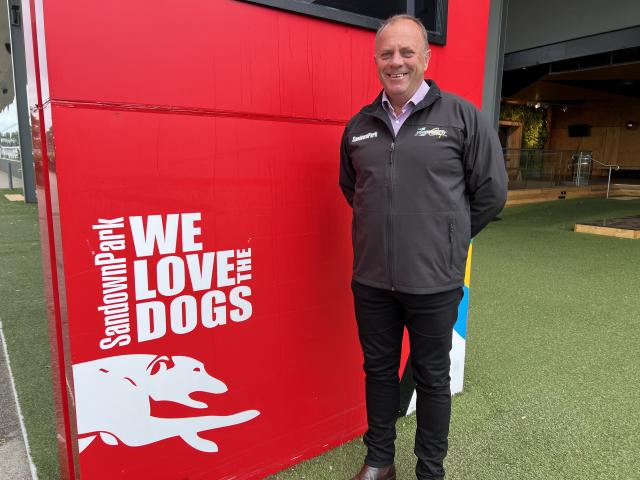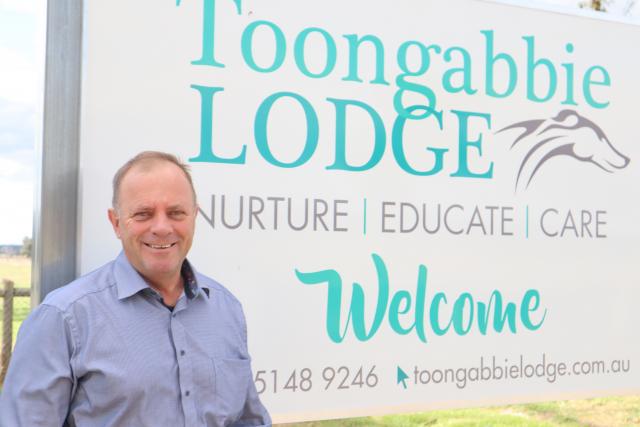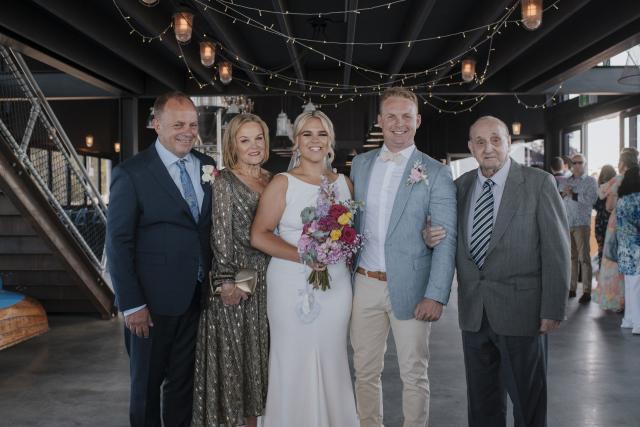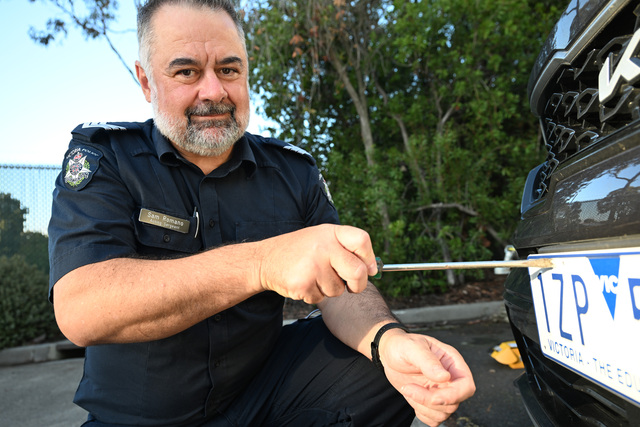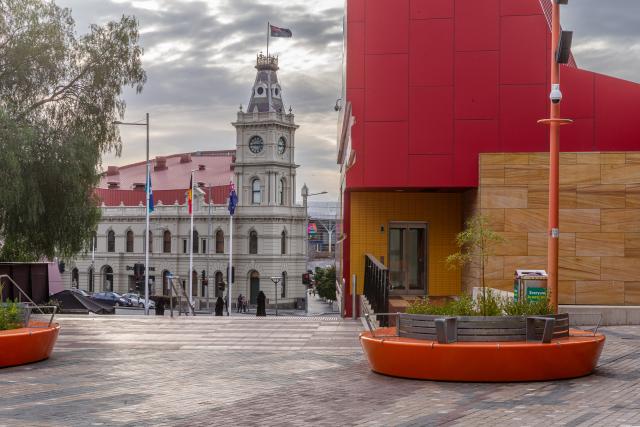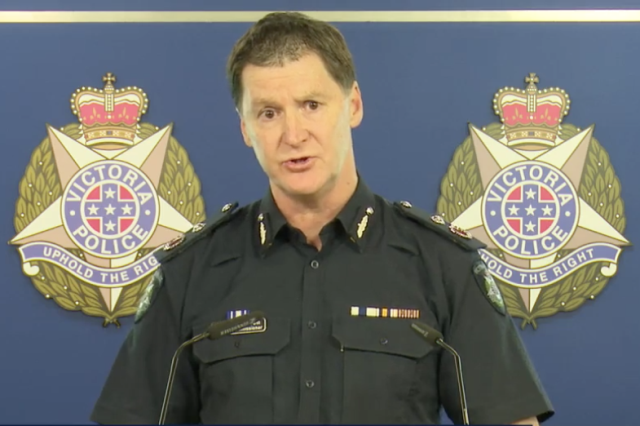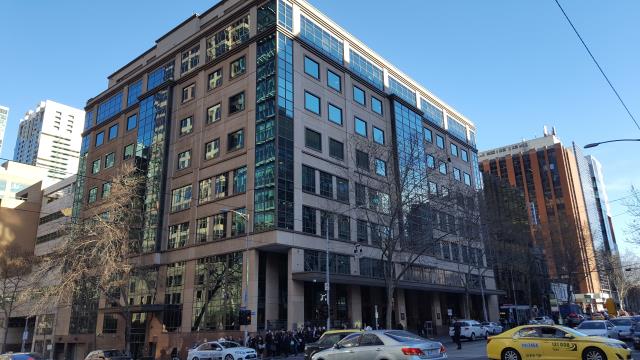When Adrian Scott pivoted towards the greyhound racing industry a few years back, a clichéd response would be to say that his career had gone to the dogs.
In reality, it was more like he was thrown to the wolves… twice!
Adrian was first coaxed into the manager’s role at Warragul Greyhound Racing Club just as the industry descended into the turmoil of the live baiting scandal that threatened its very existence.
Having helped lead industry reform to weather that storm, Adrian accepted a similar role at Sandown, renowned as the world’s biggest greyhound operation.
Then the global Covid-19 pandemic hit.
Fortunately, the former cop who cut his career teeth on the mean streets of Richmond in the 1980s and once single-handedly foiled an armed robbery was up for the challenge.
Adrian grew up in Mirboo North and spent 10 of his formative years in suburban Boronia before settling in Nar Nar Goon.
“I consider myself a Gippsland boy,” he says.
Sports mad and a talented athlete, when he finished school he had aspirations of becoming a physical education teacher.
Unfortunately his marks weren’t high enough for that and primary school teaching was the only option, so the police force became a focus instead.
Adrian graduated from the academy with not only a career, but a life partner as well, later marrying fellow recruit Christine O’Shea.
After short rounds at Russell Street headquarters and Prahan, his first posting was a five-year stint in Richmond, where criminal matriarch Kath Pettingall and her eldest son Dennis ‘Mr Death’ Allen ruled the same streets notorious gangster Squizzy Taylor frequented a generation or two before.
“The place was full of history – not all of it that savoury – and being a keen Richmond supporter it was great,” Adrian recalls.
Not all the time though.
Adrian and a few of his colleagues used to frequent the Olympic Park greyhounds on a Monday night, before a memo circulated the station warning that underworld thugs – believed to be headed by Alphonse Gangitano of Underbelly fame – were targeting off duty cops there.
That was the end of the Monday night dogs for a while.
While based at Richmond, Adrian struck up a friendship with Tigers premiership player Emmett Dunne and they’ve stayed connected through greyhounds, with Emmett on the board of Greyhound Racing Victoria.
Living in the police barracks in Russell Street, those years had a profound impact on
Adrian developing an acute social conscience.
“Those years gave me a wonderful education in life,” he recalls.
Mick Miller was the Police Chief Commissioner at the time and he had a big focus on returning police to streets. Those regular foot patrols through the commission flats in Elizabeth Street – an “ugly environment” resembling a war zone – provided the 20-year-old a lesson in empathy.
“There was a really high presence of Vietnamese migrants – on the back of the war – who had a real appreciation of what they had – and they had nothing,” he recalled. “They had a fruit box as a coffee table, yet they were so appreciative.”
One memory that sticks out is the murder of a little Vietnamese girl, who was missing for three days and her body eventually found in a garbage bin chute, having been murdered by a cleaner.
Another was the day Adrian became an accidental hero.
He was working the divisional van with a young colleague who was sporting a shocking hangover and asked to pull over in Lennox Street to find a chemist.
While his mate was being medicated, Adrian thought he would duck into a nearby TAB to have a bet and came across an armed robbery in progress.
The offender was wielding a machete and when she saw Adrian in uniform the TAB attendant was furiously pointing at him.
“I said ‘what do you think you’re doing mate’, he dropped the machete and I arrested him. Turns out he was an escapee from Footscray who had been charged with 15 armed robberies.”
Adrian earned a commendation for that arrest.
He went on to serve in stations at Glen Waverley, Warragul and Drouin but, after 20 years in the force, the shiftwork started to take a toll and Adrian retired.
Keen to try his own thing, he dabbled in the seed business, working for a couple of different companies and then purchasing Gippsland company Graham Seeds.
“It was a great industry to work in,” Adrian said. “I enjoyed working with farmers and in the country environment. It took me all over Victoria and to New Zealand and Tassie, which was great. But I didn’t really have a sales mentality.”
That lasted six years when he had a sabbatical driving buses for a while before he was approached by good friend Ron Matthews, who said there was a manager’s job going at the Warragul Greyhound Racing Club that would suit Adrian down to the ground.
Within three weeks, he had been appointed.
Adrian was no stranger to the racing industry.
One of the big motivators of moving to Nar Nar Goon in the late 1980s was to have a few acres to condition a racehorse or two.
Adrian trained out of Pakenham for 10 years, long enough to realise young daughter Bridget was not going to be his trackwork rider.
“It was a bit of fun,” Adrian said.
“I got a good picnic horse, Wakanda, who won five or six in a row around the picnics.
“On the back of that got a few others and trained for a few mates. For a while there I thought about having a go at it professionally, but thankfully didn’t go on with it.”
He made a few good friends at the track including fellow trainers Tom Scanlon and Ron Matthews and champion picnic jockey Gavin Brady, but the training regimen ended up getting too time consuming combined with a regular job.
“Ron was spot on,” Adrian said of the heads-up on the Warragul job. “I did like it, particularly the combination of racing and community involvement.”
Within weeks ABC program Four Corners ran a graphic account of live baiting – an outlawed practice where live animals are used as bait to condition greyhounds to follow the lure.
Then New South Wales Premier Mike Baird shut the greyhound industry down in that state; a move that was later overturned and cost him the top job.
Similar pressures were applied in Victoria, but the industry responded with wide ranging reforms.
“The industry came under a fair bit of scrutiny,” Adrian recalls. “Some aspects of animal welfare hadn’t evolved to meet community expectations.”
Although tumultuous, in hindsight he says it was a good time to join the industry.
“To GRV’s credit, there has been a lot of analysis and they’ve done a pretty good job around animal welfare,” he said.
“There’s still a way to go but we’re in a lot better spot and it has been nice to be a part of that change too.”
One of the initiatives – the GAP greyhound adoption program – is considered one of the most successful animal welfare programs in the country.
“Animal welfare is paramount to our future,” Adrian says. “These dogs love to race. That’s what they’ve been bred to do. So we need to make sure they are well looked after their racing career. It has to be a major focus.”
As part of the reform measures, Greyhound Clubs Victoria was set up as a representative body of the state’s 13 greyhound clubs and Adrian became its first chairman.
After five years at Warragul, Adrian was presented with an opportunity to take over as CEO at Sandown Greyhound Racing Club, right as the global pandemic hit.
He took on one of the most demanding roles in the industry at a very demanding time for the sports and entertainment industry.
Sandown is one of the biggest greyhound racing operations in the world and its best race, the Melbourne Cup, one of the most prestigious.
The club also manages a large syndication business and at the time was in the throes of establishing a greyhound breeding facility in the small Gippsland town of Toongabbie – out of which dogs will not only be bred and raced, but rehomed after their careers.
Sandown has also undergone a significant staff restructure and actively supports the Two Hearts and Reaching Out Because We Can charities, providing up to 200 meals per week for the needy.
“It is a fairly challenging role and I came into it at a fairly challenging time, but we are really lucky that we were able to keep racing through Covid-19,” he said.
“We’re getting back on track.”

